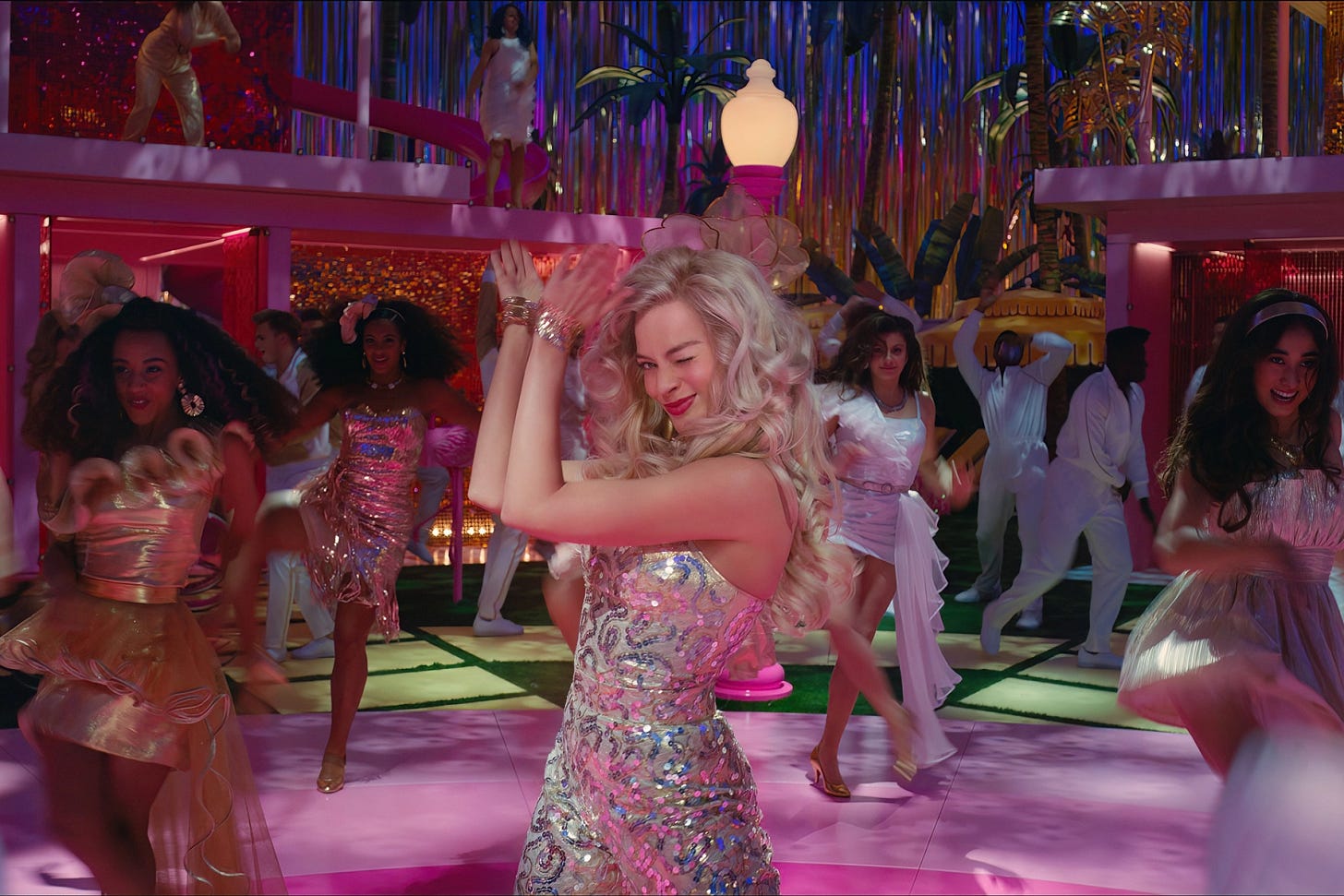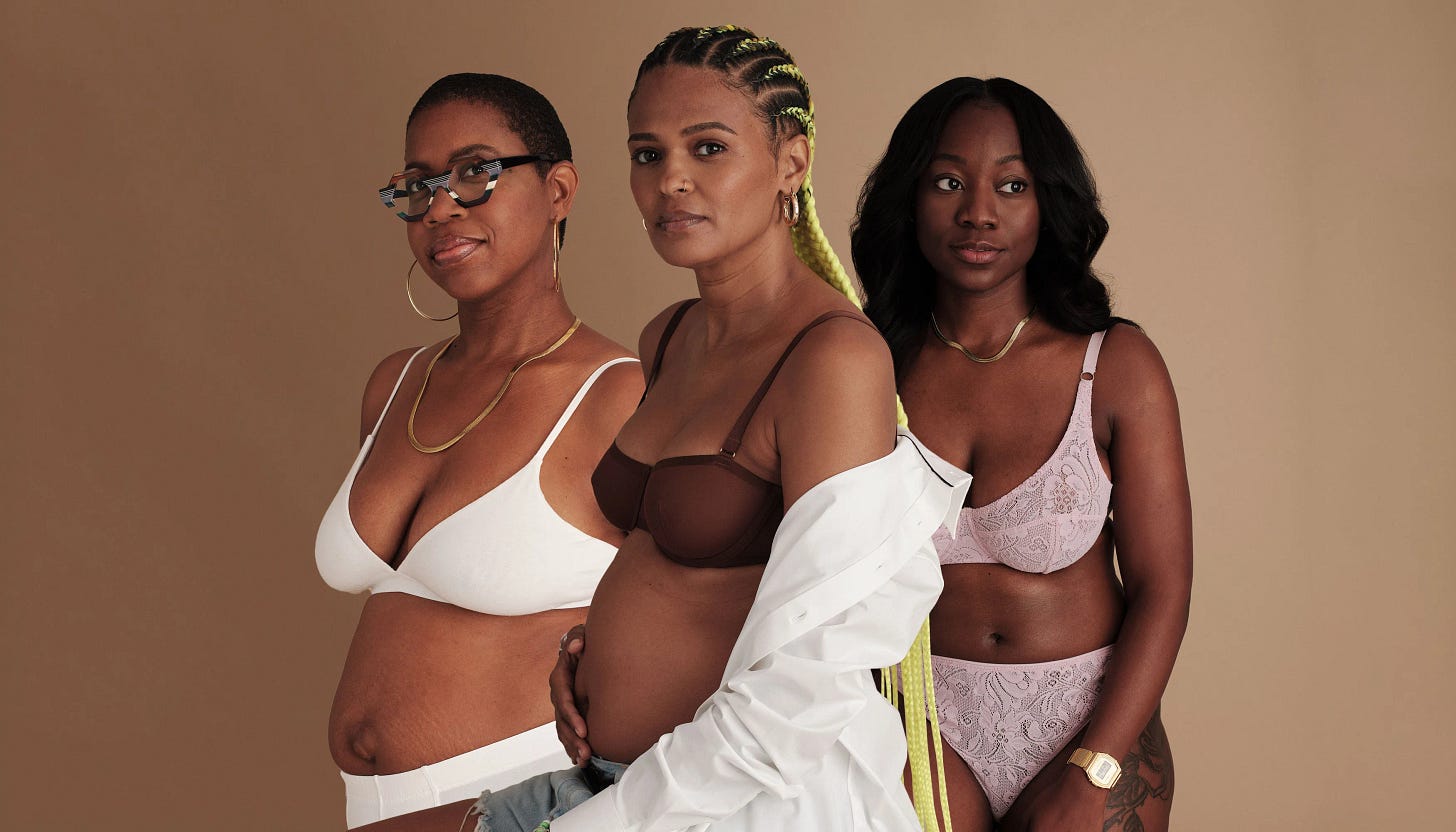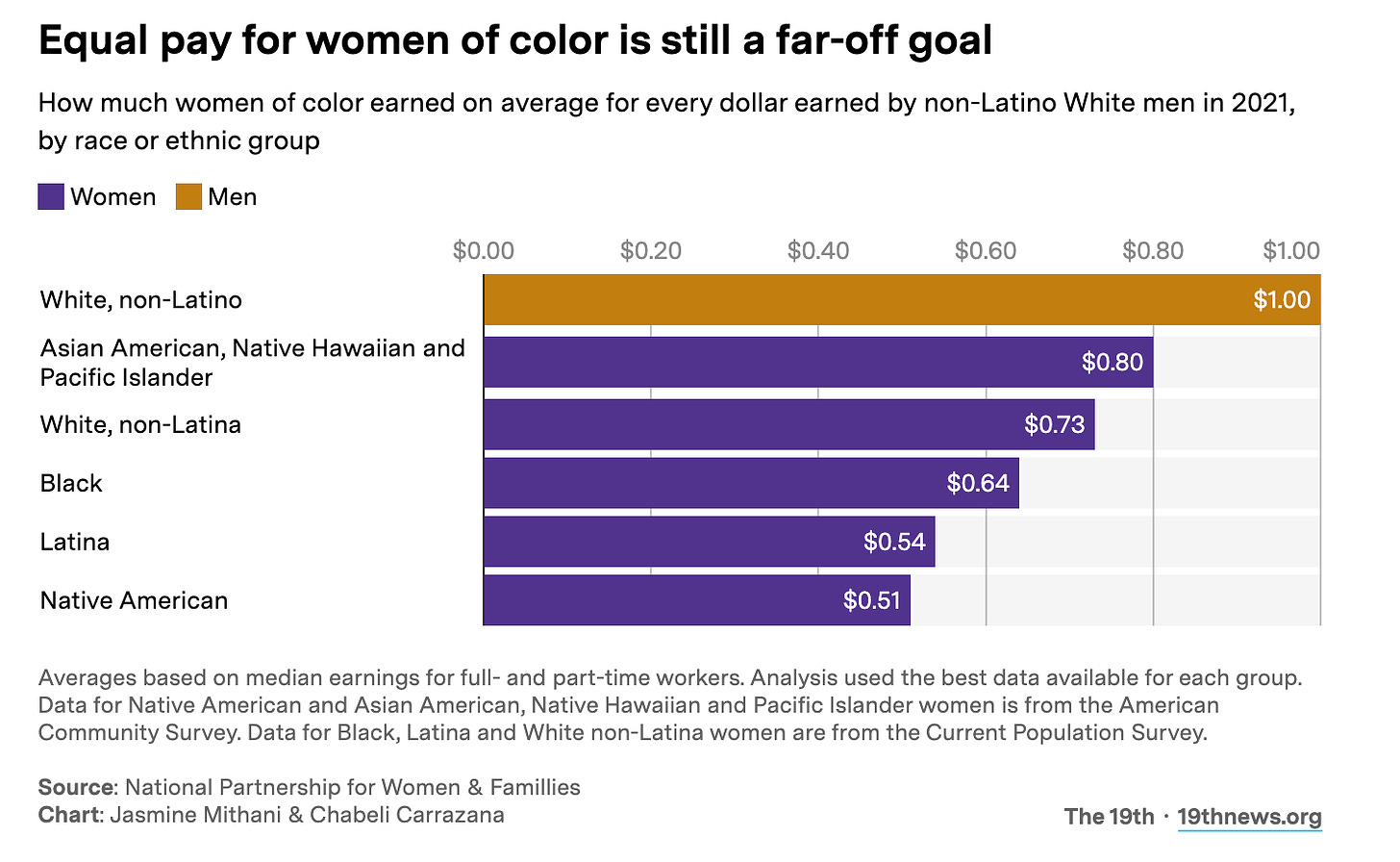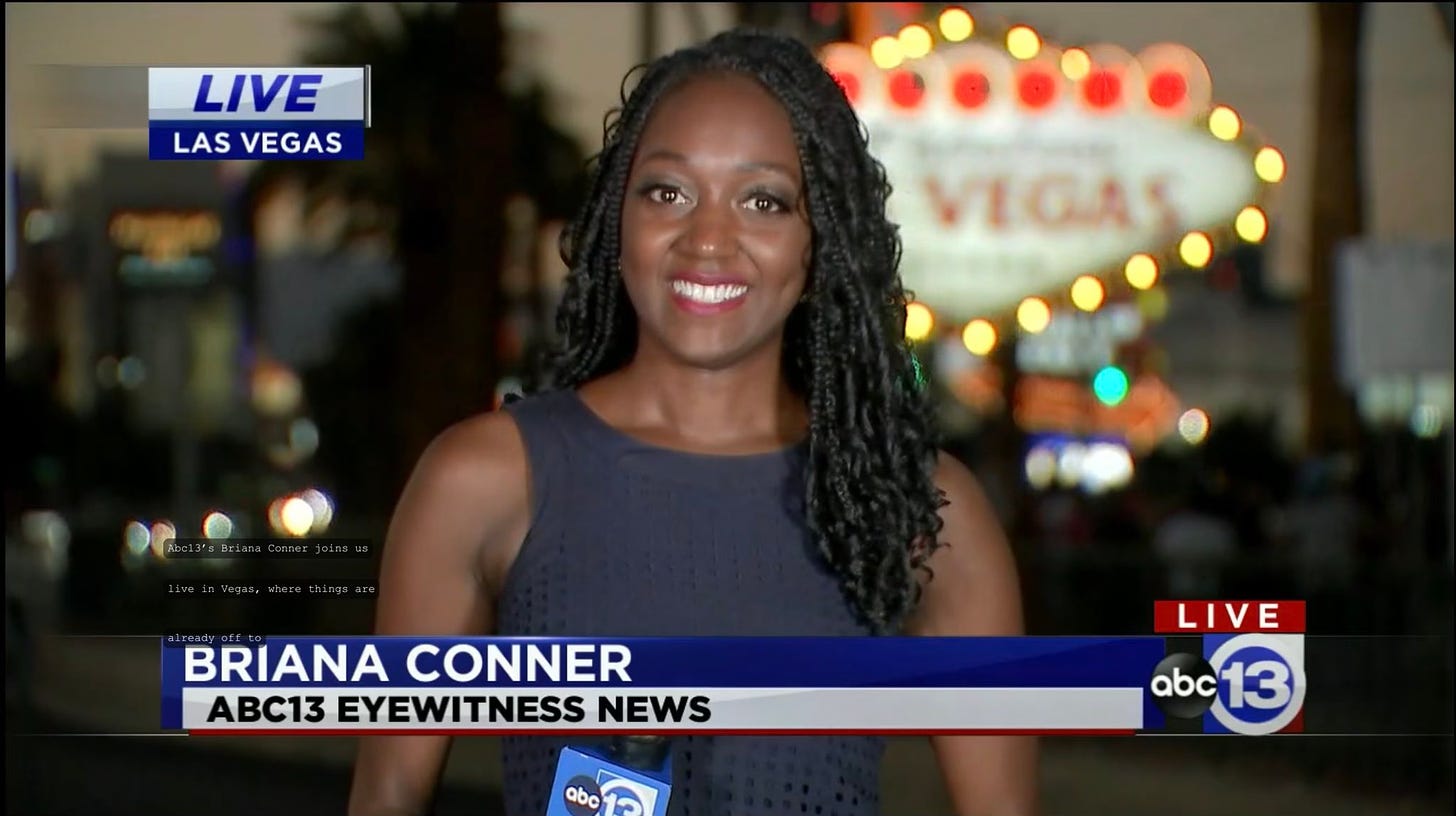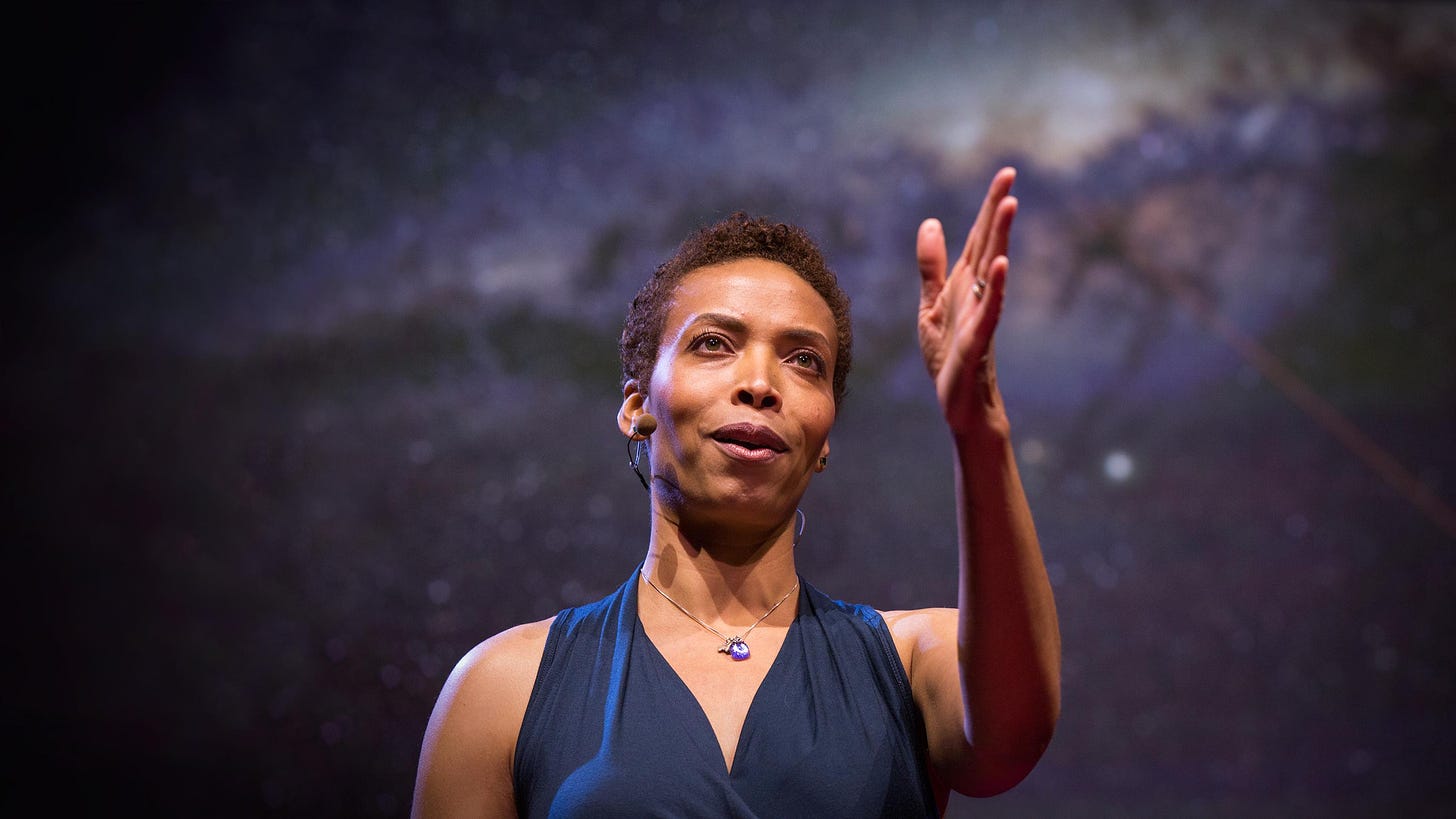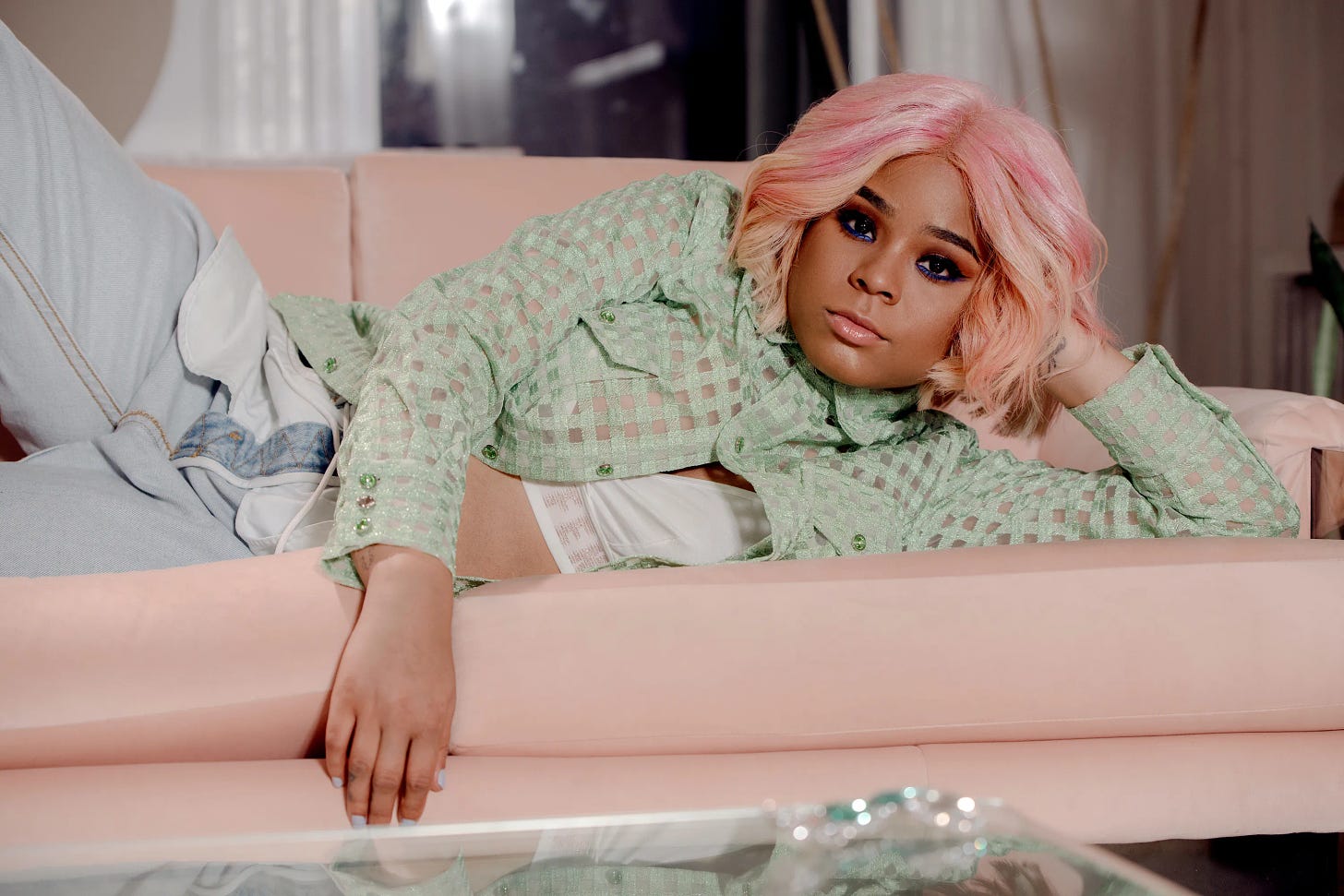Rare Photos of Revolutionaries, Skipping 'Barbie,' Living with Fibroids
Plus, Black Women's Equal Pay Day 2023 and how student loans fuel the wage gap, news anchors break the mold with braids, an astrophysicists' trailblazing journey, Carlee Russell’s complex case & more.
A Trove of Rarely Seen Photographs of Revolutionary Black Women
Hyperallergic, Elaine Velie
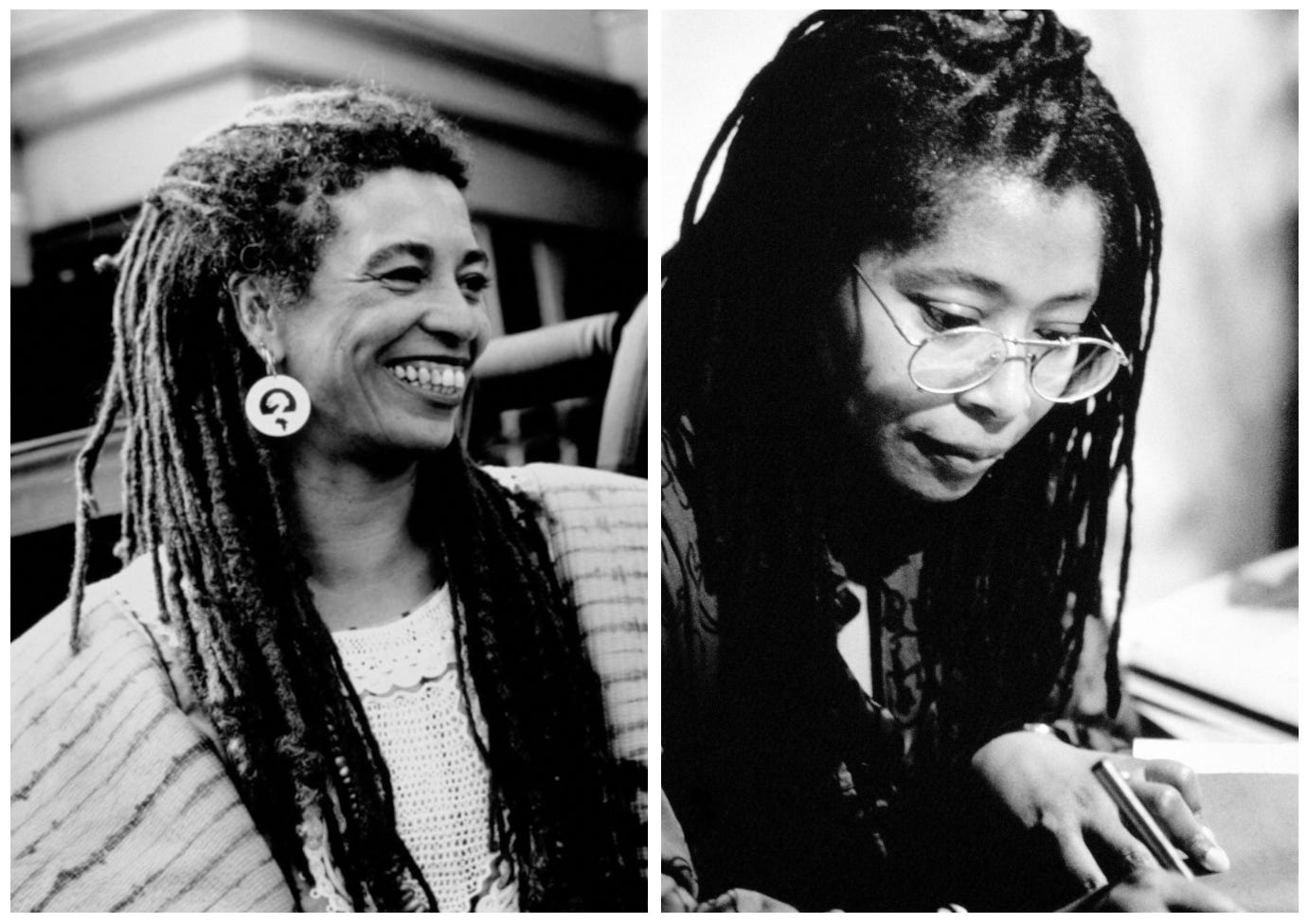
“Jean Weisinger spent much of the 1990s capturing intimate portraits of revolutionary Black women — Audre Lorde, Alice Walker, Angela Davis, and Assata Shakur among them — and impromptu photographs of people she met in her travels across the United States. Almost none of the artist’s work made its way into museum collections or gallery exhibitions, but from the tiny Alice Austen House in Staten Island, Executive Director Victoria Munro has spent the past two and a half years developing Weisinger’s unrevealed photographs and meticulously documenting the histories behind each one of them. Progress Towards Freedom and Love, on view through August 31, showcases Weisinger’s formidable body of portraiture — and finally tells the photographer’s story.
‘I absolutely believed in her, and from the few images I had seen, I knew that there was so much more to uncover,’ Munro told Hyperallergic.”
Why I'm passing on the "Barbie" movie: My daughter already receives enough unintentional whiteness
Salon, D. Watkins
“Barbie, which does have a few nonwhite cast members, including Rae, America Ferrera, and Ncuti Gatwa, has one of the whitest trailers I ever saw in my life. And no, I'm not that guy; I genuinely believe that artists and filmmakers can create whatever they want, but I must be cautious of what I expose my daughter to. She's too young to understand the complexities of gender, so how do you even begin to open the door to conversations about race and how movies and commercials in America act like white people have a monopoly on beauty? Google ‘attractive woman’ and watch the page fill up with white faces.
As a family, we must be intentional when we buy Black dolls, books with Black queens and princesses and allow her to watch cartoons like ‘Gracie's Corner,’ ‘OmoBerry’ and ‘Karma's World.’ And no, we are not teaching her to only connect with Black art; it's just that everything white is always available and at the forefront of everything. You don't have to search for white content; it's already in your face.”
30 Black Women Share What It's Like to Live With Uterine Fibroids
Allure, Kayla Greaves
“…it's clear that living with uterine fibroids as a Black woman, while also trying to navigate a discriminatory health care system, is rarely ever a straight and narrow path. Along with the common physical symptoms, there is the mental anguish, fatigue, anxiety, loss of pleasure during sex, high cost for treatment, and many other factors that are oftentimes not accounted for.
Since the severity and side effects of fibroids can vary so wildly, it's important to work with your doctor to find the best treatment plan for you. But hearing other people's stories can be a source of comfort and empowerment as well, if only because it proves you're not alone. To highlight the extremely common, but under-discussed, experience of living with uterine fibroids, Allure spoke with 30 Black women from all walks of life to discover what this journey is really like — and how it has transformed the ways in which they now care and advocate for themselves, and their bodies.”
RELATED:
Dr. Thomasena Ellison weighs in on Black women automatically told to get a hysterectomy for fibroids, The Grio
Things to know for 2023 Black Women’s Equal Pay Day
The Grio, Haniyah Philogene
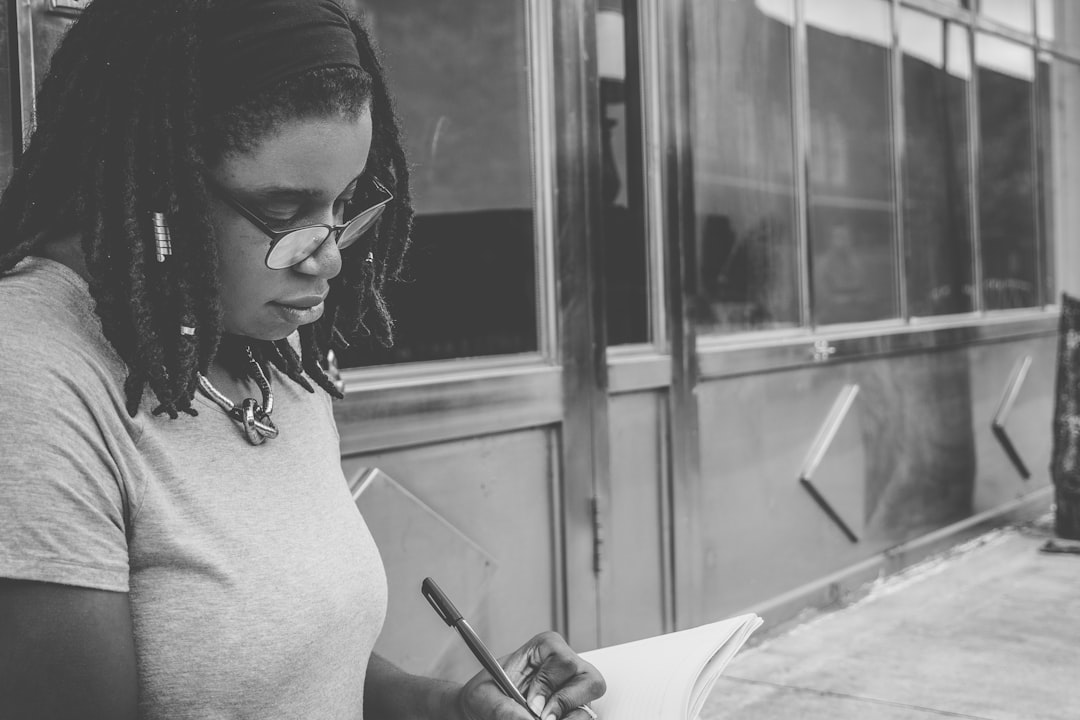
“This year’s commemoration of Black Women’s Equal Pay Day is particularly significant as it coincides with the 60th anniversaries of the Equal Pay Act and the March on Washington. As the nation faces attacks on voting rights, reproductive rights, LGBTQ+ rights, and Black history in education, Campbell notes that society is at an inflection point in which ‘we’re going to move forward, or we’re going to move backward.”’
In an effort to move the needle toward equal pay for Black women, representatives from the National Partnership for Women & Families, the National Coalition on Black Civic Participation, the National Women’s Law Center, Equal Rights Advocates, Equal Pay Today, and the Black Women’s Roundtable are working together to find policy solutions to close the wage gap.
However, to fully understand their policy suggestions, one must understand the personal impacts of the wage gap on Black women. The disparities in Black women’s paychecks trickle down to their communities, families, and, ultimately, their children. According to Emily Martin, the vice president of education and workplace balance at the National Women’s Law Center, the 33-cent loss that Black women experience adds up over a lifetime.”
How student loan debt has fueled the pay gap for Black women
The 19th, Chabeli Carrazana and Jasmine Mithani
“Student loans have been the barrier to economic mobility for Black women, not the on-ramp. And the shadow of debt is creeping closer as repayments on federal loans are set to start again in October.
Already, Black women earn 64 cents compared with the White man’s dollar. Thursday, which marks Black Women’s Equal Pay Day, recognizes that disparity. The weight of student loans is a key part of why that disparity exists. It could grow even larger in the wake of a pair of Supreme Court decisions reversing affirmative action, ending race-conscious admissions at most colleges and universities, and blocking the Biden administration from canceling student loan debt for 40 million borrowers.
Already, Black women — who pursue education at higher rates than Black men — hold the highest debt of any group: $38,800 on average for an undergraduate degree and $58,252 on average for a graduate degree alone. When they earn at least a bachelor’s degree and enter the labor force, Black women and Latinas’ pay are the lowest among similarly educated people from other racial groups. Black women are also the most likely to have caregiving responsibilities such as being student parents, which makes them more likely to borrow additional money while having to navigate child care costs.”
Carlee Russell’s case gave hope that missing Black women finally mattered — until doubts set in
NBC News, Claretta Bellamy, Uwa Ede-Osifo and Char Adams
“Given the disproportionate data that missing Black women are often ignored, the virality of Russell’s case is uncommon, Lindsey said. ‘We have to prove to people that we’re worthy of empathy, worthy of care, worthy of protection, worthy of being believed,’ she said.
She cited misogynoir, a concept that refers to the simultaneous misogyny and racism Black women uniquely face, as a factor explaining why their cases have historically been downplayed.
While ‘there is a growing investment from folks around missing Black girls and women,’ Lindsey added, ‘I still think we have a racial empathy gap. Watching the aftermath of her being found suggests to me that we still have this kind of criminalizing, skeptical, cynical and ambivalent impulse around stories of Black women and girls who go missing.’”
Related:
The woman dedicated to finding missing Black people urges public to stay vigilant, What I’m Reading
The lesson of Carlee Russell? Learn the names of these missing Black women., The Washington Post
‘They’re taking it personal’: a hoax for Carlee Russell is bitter reality for 89,000 Black women and girls in US, The Guardian
Black TV news reporters share why they wear their braids on-air: 'Just because I work in TV, it should not prohibit me from being able to experience my hair'
Yahoo News, Tayler Adigun
“‘It was getting hotter in Houston. I was seeing protective styles pop up everywhere on Black women, and I was like, ‘That's it. I'm doing it.’’
Now Conner joins a growing number of Black women who are wearing braids on-air — including ABC 11's Akilah Davis, who has marked the date of her ‘natural hair liberation’ to commemorate achieving ‘hair freedom,’ and Joneé Lewis, a Fox 13 reporter in Tampa Bay, Fla., who says that she had steered clear of such on-air styles because of early-career encounters with hair-based discrimination.
‘A reporter at one of the places I interned came to work with her natural hair, and one of the white managers told her, ‘Hey. You have to do something with that,’’ recalls Lewis. She says she carried that experience with her, telling herself, ‘If I want to get into this industry, which is already difficult to get into for Black women, then I need to have a certain type of look to be accepted by news directors.’”
Black women saw fetal mortality rates fall 4% in 2021, but still twice as high as national average: CDC
ABC News, Mary Kekatos
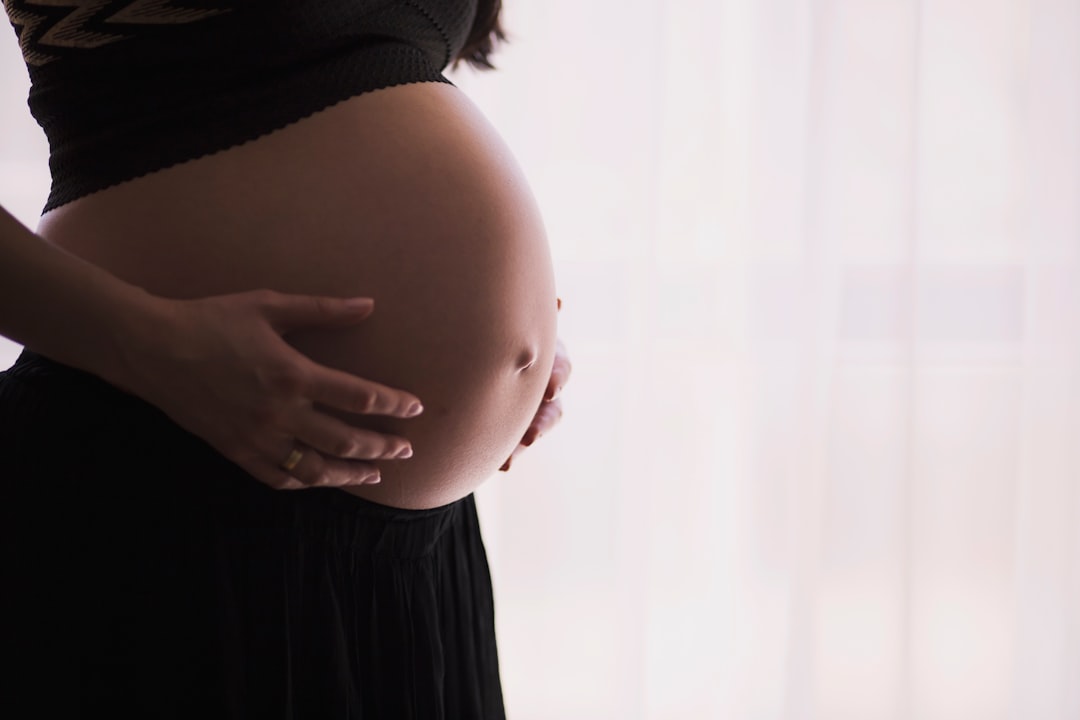
“The report did not explore reasons behind the decline for Black women -- or why other groups did not see a significant change -- but Manning said there could be multiple reasons.
One reason could be that the racial reckoning that started in summer 2020 help illuminate disparities experienced between Black women and other minorities compared to white women.
‘So maybe there's been more attention to improving access and care for Black women, one would hope hypothesize that,’ Manning said.
He said another potential reason could be that unemployment among Black Americans has been falling, which could lead to them having more access to health care.”
Only 26 Black Women Have Ever Become Astrophysicists in the U.S. Here’s One’s Story
Scientific America, Rebecca Boyle
“Shields is a Black woman in a field dominated by white men, she was an older returning student, and she was educated as an actor. “The imposter syndrome didn’t just visit. It pitched a tent, had a cookout, started planning parties, and hosted ritualistic dances, howling at the moon on my doorstep,” she writes in her new book Life on Other Planets. In a conversational tone, at times witty and poetic, the book tells the story of Shields’s decision to return to her first love, the night sky, after an acting career. Now a professor studying exoplanets at the University of California, Irvine, Shields is one of just 26 Black female astrophysicists in American history. Shields says she wanted to write her book to show others what it took her a long time to learn: that dreams have no expiration date, that there is no one way to be a scientist and that if no role models can be found, you can be your own.”
‘Fast Car’ and the Roadblocks Black Female Songwriters Face in Country Music
Rolling Stone, Jonathan Bernstein
“The fact that the number of Black women with writing credits on country chart-toppers can be counted on one hand illustrates how much Nashville has to do to become more welcoming.
Parx remains hurt over a dispute she had while working on another country song in a Nashville writing room. She co-wrote Kelsea Ballerini’s ‘Overshare’ with hit songwriters Josh Osborne and Jesse Frasure in 2019, and quarreled with Frasure over how she’d be credited. Parx wrote the chords to the song and played piano while ‘Overshare’ was being composed, and thus, in addition to her writing credit, she believed she was due a production credit too. She didn’t get one.
‘In songwriting, there’s a major difference between producer and songwriter credits, and it’s the money earned, because producers, more than likely, get points, whereas songwriters only get publishing [royalties],’ she says. ‘And so you don’t have a lot of women, and a lot of Black women, especially, owning portions of a master [recording].’
When Parx raised the issue, she remembers Frasure telling her that she was lucky to be invited to write on the song at all. ‘It really left a taste,’ she says. ‘Every time I think about that story, it just hurts.’ (A rep for Frasure declined to comment.)”





